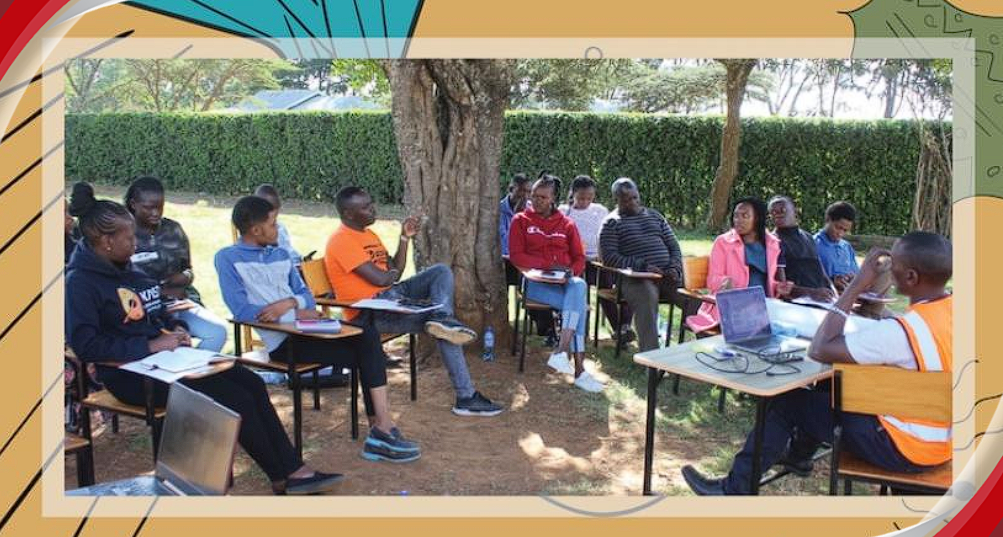Articles
SA’s broadband speed versus the world revealed
-
1 year ago
South Africa ranks number 104 in the 2023 Global Broadband Speed League of 220 countries, released today by UK-based firm Cable.
Cable conducted an analysis of around 1.3 billion broadband speed tests worldwide for this report. The research was designed and compiled by Cable.co.uk, and the data gathered by M-Lab. Measurement Lab is led by teams based at Code for Science & Society, Google and supported by partners around the world.
Forty-eight countries failed to achieve average speeds of 10Mbps or greater − the speed deemed by UK telecoms watchdog Ofcom to be the minimum required to cope with the needs of a typical family or small business, says Cable.
It points out this is down from 67 countries in 2022, and 94 countries in 2021, indicating significant speed improvements are ongoing in many parts of the world.
According to the report, 30 of the top 50 fastest-performing countries are in Europe (Eastern, Western and Baltics), with six in Asia (ex-Near East), six in the Caribbean region, three in South America, three in Northern America, one in the Near East and one in Oceania.
By contrast, 32 of the 50 slowest-performing countries are in Sub-Saharan or Northern Africa, five are in Asia (ex-Near East), four in the Near East, three in the Commonwealth of Independent States (CIS) region, five in Oceania, and one in the Caribbean region.
Cable notes that 47 countries were measured in the second-slowest region Sub-Saharan Africa, which averaged a download speed of 12.11Mbps overall. All but four of the countries are in the slowest half of the league table, it adds.
Africa’s performance
Going against the trend somewhat were Réunion (45.51Mbps, 79th), Rwanda (39.89Mbps, 99th), South Africa (36.46Mbps, 104th) and Burkina Faso (35.64Mbps, 108th).
Meanwhile, Equatorial Guinea (2.70Mbps, 216th), Cameroon (3.16Mbps, 213th), Ethiopia (3.54Mbps, 212th), Burundi (3.70Mbps, 211th) fell among the slowest 10 countries in the world for average network speed.
Northern Africa recorded the slowest overall internet speeds as a collective region, with an average speed of 9.81Mbps.
Morocco (16.49Mbps, 144th), Egypt (9.75Mbps, 172nd) and Tunisia (9.60Mbps, 174th) offered the fastest speeds in the region.
Libya (6.32Mbps) recorded the slowest speed in 195th place, followed by Algeria (7.73Mbps, 187th) and Mauritania (8.95Mbps, 182nd).
Five countries were measured in Northern America, all of which were in the top half of the table. The region as a whole has an average speed of 94.02Mbps. The US (136.48Mbps, 12th) led the region, with Canada (136.08Mbps, 13th) coming a close second, and Bermuda (95.58Mbps, 30th) in third place.
Meanwhile, Greenland (41.19Mbps, 95th) was the slowest in the region, followed by Saint Pierre and Miquelon (60.77Mbps, 57th).
Of the 14 qualifying countries in Oceania, most were in the bottom half of the speed table. The region has an overall average of 25.93Mbps. Leading the regional table here is New Zealand (97.09Mbps, 27th), followed by Australia (51.27Mbps, 69th) in second place, with the Marshall Islands (36.89Mbps, 103rd) in third place.
The slowest in the region were Wallis and Futuna (2.72Mbps, 215th), the Federated States of Micronesia (4.25Mbps, 208th) and Vanuatu (6.57Mbps, 190th).
The 13 countries measured in South America span from the middle to the lower end, with a regional average speed of 44.38Mbps.
The fastest internet in South America can be found in Uruguay (111.46Mbps, 20th), Chile (85.49Mbps, 40th) and Brazil (72.70Mbps, 48th). Venezuela (10.92Mbps, 168th), Suriname (12.48Mbps, 159th) and Bolivia (16.00Mbps, 148th) were the slowest in the region.
All 28 countries measured in Western Europe were in the top half of the table, with eight in the top 10.
The regional average speed of 118.69Mbps makes it the fastest of the 13 global regions overall. High average speeds were measured for regional top-three Jersey (264.52Mbps, 1st), Liechtenstein (246.76Mbps, 2nd) and Iceland 229.35Mbps, 4th). The slowest places in the region were Faroe Islands (41.97Mbps, 92nd), Denmark (49.98Mbps, 71st) and Austria (55.82Mbps, 67th).
Asian speeds
Twenty-seven countries were measured in the Asia (ex-Near East) region, which clocked in a regional average speed of 45.72Mbps.
The fastest average speeds were measured in Macau (231.40Mbps, 3rd), Taiwan (153.51Mbps, 8th) and Japan (124.70Mbps, 18th).
Afghanistan (1.71Mbps, 220th), East Timor (2.50Mbps, 217th), and Pakistan (5.32Mbps, 200th) were the slowest in the region, with East Timor and Afghanistan among the slowest 10 countries in the world.
The Baltics, comprising three qualifying countries, ranked entirely within the top 50, and have an overall regional average of 80.09Mbps. Lithuania fared best in 37th place overall, with an average speed of 87.09Mbps. Estonia (86.36Mbps, 38th) and Latvia (66.79Mbps, 50th) followed behind.
The Caribbean region fared well, with five of its 27 countries featuring in the top 50 fastest countries in the world. Overall, the region offers 38.93Mbps on average. At the faster end, the Cayman Islands (125.08Mbps, 17th), Puerto Rico (96.65Mbps, 29th) and Barbados (93.50Mbps, 35th) led the way, while Cuba (4.14Mbps, 209th), Haiti (10.75Mbps, 170th), Sint Maarten (16.00Mbps, 147th) and Dominican Republic (19.48Mbps, 137th) were the slowest.
Most Central American countries were toward the middle of the league table. The region as a whole has an average speed of 32.88Mbps. The fastest average speeds can be found in Panama (56.93Mbps, 65th), Costa Rica (42.51Mbps, 90th) and Belize (38.86Mbps, 100th). Meanwhile, Honduras (16.76Mbps, 143rd), Guatemala (23.26Mbps, 129th) and El Salvador (23.56Mbps, 128th) all performed relatively poorly.
Of the 11 CIS nations in the table, most can be found from the middle of the table downwards.
The region had an average speed of 22.92Mbps. The top three fastest in the region are Russia (57.95Mbps, 62nd), Ukraine (38.13Mbps, 101st, whose speed has slowed significantly this year) and Belarus (34.10Mbps, 109th).
The slowest countries in the region were Tajikistan (2.98Mbps, 214th), Turkmenistan (4.49Mbps, 206th) and Azerbaijan (10.20Mbps, 171st). Both Tajikistan and Turkmenistan were among the slowest 20 places in the world.
Eastern Europe
There are 16 qualifying countries in the Eastern Europe region, all bar two of which are in the top half of the table, with six making it into the top 50. The region averages 67.92Mbps.
The fastest three were Slovakia (138.03Mbps, 11th), Romania (100.66Mbps, 25th) and North Macedonia (97.88Mbps, 26th). The slowest three were Albania (25.36Mbps, 125th), Croatia (25.72Mbps, 124th) and Bulgaria (40.43Mbps, 98th).
The 15 countries in the Near East measured for this year’s speed league table span the middle to the bottom of the table.
The average download speed for the region is 30.41Mbps. The fastest countries were Israel (75.03Mbps, 46th), Qatar (50.68Mbps, 70th) and Bahrain (47.72Mbps, 75th). The slowest were Yemen (1.79Mbps, 219th), Syria (2.30Mbps, 218th) and Lebanon (6.55Mbps, 191st).
Related Articles Posts
Categories
Popular Post
-
 SA’s IT spend to outpace GDP growth 1 year ago
SA’s IT spend to outpace GDP growth 1 year ago -
 Vodacom, Netstar launch free in-taxi Wi-... 1 year ago
Vodacom, Netstar launch free in-taxi Wi-... 1 year ago -
 South Africa under pressure to fill cybe... 1 year ago
South Africa under pressure to fill cybe... 1 year ago -
 Organisations with a strong employee val... 1 year ago
Organisations with a strong employee val... 1 year ago -
 Joint policy-in-action event highlights... 1 year ago
Joint policy-in-action event highlights... 1 year ago -
 Boost your digital transformation journe... 1 year ago
Boost your digital transformation journe... 1 year ago








